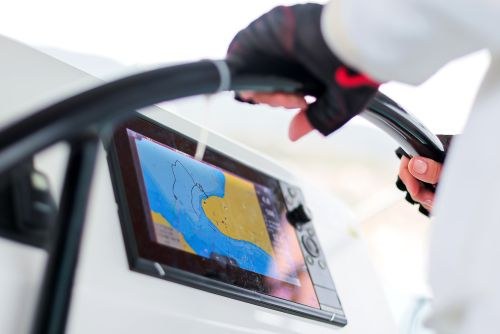A new second-cycle degree programme in Nautical Engineering will start next September at the University of Bologna's Forlì Campus. The programme, developed in response to a strong need expressed by the area's industrial ecosystem, aims to train second-level graduates able to work on the design and production of pleasure boats, and related components, at all stages of product development, from conception, design and engineering through to large-scale production, distribution and market dissemination.
The activation of this new programme was promoted by Ferretti S.p.A., the Emilia Romagna Regional Authorities, the Forlì City Council and Chamber of Commerce, and Fondazione Cassa dei Risparmi di Forlì. The decision to locate the programme at the Forlì Aeronautical Technology Hub next to Ridolfi Airport, where the two second-cycle programmes in Aerospace and Mechanical Engineering for Sustainability already operate, is highly strategic as it grants access to numerous laboratories and to a high training potential in the fields of aerospace and mechanical engineering. Important synergies will be leveraged, for example in fluid dynamics (also due to the presence on the Forlì Campus of CICLoPE, the Centre for International Cooperation in Long Pipe Experiments, a very important international research infrastructure dedicated to the study of wall turbulence), as well as in propulsion, construction, and design using composite materials.
The two-year degree programme includes course units in introductory subjects such as Mathematics, Physics and Fluid Dynamics, and fundamentals of Nautical Engineering such as Naval Architecture, Naval Constructions and Installations, Industrial Engineering Design and Methods.
The programme is open to students who have obtained a first-cycle degree (under Italian Min. Decree 270) in the Industrial Engineering class, or hold a three-year or five-year university degree, or an equivalent qualification obtained abroad, deemed suitable. Additionally, candidates must meet the curricular requirements and pass the assessment of personal knowledge and skills.
Another distinctive aspect, enhanced by the presence of major companies in the area, is the opportunity for students to engage in laboratory experiences, internships, and final projects (dissertations) in close cooperation with these companies.


